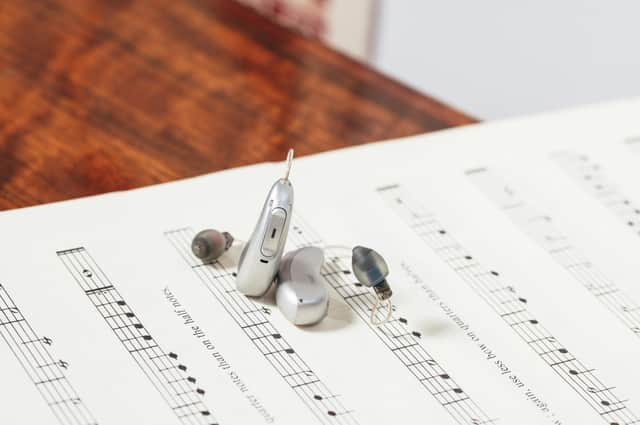Don’t let your hearing ring out: Tinnitus Week


It is also estimated that one in six people who have had Covid also experienced tinnitus as a side effect. While it is not known what causes tinnitus, it has been linked to hearing loss and changes in the way the brain processes sounds.
This Tinnitus Week (February 7-13) Specsavers Coleraine Hearcare audiologist and partner, Joanne Torrens, explains more: “Tinnitus is the perception of noises in the ear. While it isn’t a condition itself, it is often a symptom of something underlying such as age-related hearing loss, an ear injury or even a circulatory system disorder. It is very common and can occur at any age, not only in those who have hearing loss but also in those who don’t look after their hearing.
Advertisement
Hide AdAdvertisement
Hide Ad“The main sensation is often a ringing sound in the ear. However, other sounds that can be heard include buzzing, whistling, humming, hissing and grinding. It can be a constant sound or occasional and the volume may vary.
“People who work with loud noises should always make sure they are wearing hearing protection, especially those who work with loud music, loud machinery and those who are exposed to loud bangs or who go clubbing frequently.
“You also need to exercise caution when you’re wearing your headphones. To stay safe you should never listen to your music above 60% volume and you should also give your ears a break every hour too.”
What can help?
Tackling tinnitus by yourself can be daunting and can make you feel isolated and alone, but there is a variety of support available for tinnitus sufferers depending on symptoms. If you have tinnitus sounds pulsating or in just one ear, it is best to discuss this with your GP. If you have symptoms of both tinnitus and hearing loss, the use of hearing aids can be successful in managing and improving your symptoms and your audiologist will be able to help.
Advertisement
Hide AdAdvertisement
Hide AdFor people who have symptoms of tinnitus but don’t have hearing loss, there are many techniques to help manage or alleviate them. These include cognitive behavioural therapy, as well as the use of background noise in quiet situations.
The British Tinnitus Association can also offer support through its freephone helpline, email, SMS/text and web chat services. Its tinnitus support team has many years of experience supporting people with tinnitus and all their support services are free.
To find out more visit www.tinnitus.org.uk or call the British Tinnitus Association helpline on 0800 018 0527. If you have concerns about your hearing, you can book a hearing test by visiting https://www.specsavers.co.uk/stores/coleraine